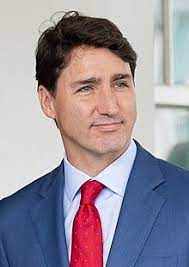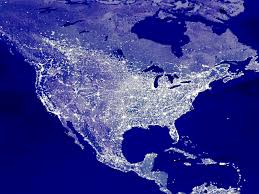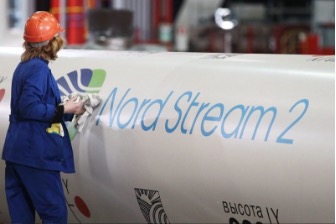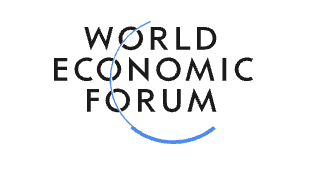Often you hear people talk about the THEY that are running the world. Today, the THEY may actually exist! A real organization made up of the world’s richest and most powerful people are directing leaders of countries on which policies they should be creating for their countries. Justin Trudeau is one of their most fervent acolytes.
Many people are pointing to the World Economic Forum, (WEF), an Organization that is very close to the heart of our Prime Minister, Justin Trudeau, as the influencer for global elites. They suspect that Trudeau’s policies for Canada come, often directly out of the WEF’s priorities

DAVOS MAN
The formation of a detached elite, which is often co-labelled through the neologism “Davos Man”, refers to a global group whose members view themselves as completely “international”. The term refers to people who “have little need for national loyalty, view national boundaries as obstacles, and see national governments as residues from the past whose only useful function is to facilitate the élite’s global operations” according to political scientist Samuel P. Huntington, who is credited with inventing the neologism.[127] In his 2004 article “Dead Souls: The Denationalization of the American Elite”, Huntington argues that this international perspective is a minority elitist position not shared by the nationalist majority of the people. wikipedia.org
The Latest Issue; (Fertilizer)
The federal government is looking to impose a requirement to reduce nitrous oxide emissions from fertilizers. They say it emits a greenhouse gas (nitrous oxide) that contributes to climate change and that these emissions are the concern. The government, they say, isn’t actually advocating reduction of fertilizer use. The Trudeau government says that what they want is a 30% reduction in nitrous oxide emissions. Farm producing groups, and the Agriculture Ministers of Canadian provinces say that at this point, reducing emissions can’t be done without reducing fertilizer use. This whole idea is another example of the Trudeau governments knee-jerk, dictatorial, ill-conceived, amateur, and myopic policies SeeVideo
It was only in December 2020, that the same Liberal government imposed a national fertilizer reduction target of 30 per cent below 2020 levels by 2030. This was already a challenge, because Canadian farmers are already among the most sustainable growers in the world, As a result there is even less room to lower fertilizer emissions without compromising food production than there is in other countries.
To meet this climate goal, Canadian farmers have introduced a world leading, highly scientific, stewardship process called (4R) The (4Rs) – (Right Source), (Right Rate), (Right Time), (Right Place)-Nutrient is a highly science based, holistic crop management system. 4R was chosen to reduce environmental impacts while supporting Canadian farmers and Canadian consumers. But suddenly , and without consulting the Provinces, the Liberals have imposed a further restriction on farmers
FACTS
According to Trudeau and friends, Agriculture in Canada is a serious risk. In 2020, the agriculture sector in Canada was our fifth largest source of GHG emissions, accounting for 10% of Canada’s total emissions. Canada’s total GHG emissions amounts to 672 megatons or, a grand total of 1.5% of the world’s 36.3 billion tonnes of CO2 equivalent emissions, The 67 megatons generated by all of Canada’s Agriculture industry amounts to less than 0.15%. of the world’s emissions For example, 0.015% of a gallon of liquid would be 1.92 ounces. And that is All agriculture emissions. Crops account for only about 15% -20% of that figure, or less than 0.03% of the world’s emissions, Why then is the Trudeau Government acting like Canada is the evil empire who is ruining the world’s climate. Or is Canada and Trudeau blindly following the dictates of someone else.
I spent most of my career handling problems of quality and one thing that I learned early on was, in order to solve a complex problem, first focus on the significant few and not the insignificant many. The significant few ,when it comes to climate are coal, oil, cement and international travel. The significant national emitters are, The United States, China, and Russia. Canada’s fertilizer use and Canada in general are far down the list of priorities and yet the Trudeau Liberals would have Canadian’s believe that not reducing our fertilizer use immediately would cause some kind of a world wide disaster.
Why?
But the big question is WHY? Where is this seemingly destructive, ill timed policy coming from? Farmers say that they are already world leaders in the scientific use of fertilizer, and that there is very little room for further reductions. The war in Ukraine and ongoing supply chain problems have seriously disrupted the world’s food supply. Yet, even though, Canada’s importance, as a breadbasket of the world, cannot be overstated, Trudeau has targeted food production. But, where did this idiotic initiative of Trudeau’s come from?
It comes from a WEF initiative.
Canada’s Agricultural impact
Canada is the fifth-largest exporter of food in the world, and exported over $82 billion dollars worth of food in 2021, created 2.1 million jobs and constituted 6.8 per cent of Canada’s GDP. Yet, Trudeau has decided to create a policy, guaranteed to worsen the situation.
No one is claiming that Canada should not do our part in the climate battle. Yes we need to participate in actions to address climate change. Yes, Canada needs to implement the best technologies. See the Boundary Dam Carbon Capture plant. Yes we need to develop alternative energy sources. But there are other priorities for our country and we should expect our politicians to consider all of the facts before initiating policies. Particularly when those policies will potentially deprive Canadians of food, and certainly when those policies are dictated by an independent, unelected mystery organization of elite billionaires.
Formation of Detached Elites
Some point to the world wide Cabol that is the WEF (The World Economic Forum) to see the underlying force that is driving these otherwise unfathomable decisions. According to the WEF, there is an urgent need for global stakeholders to cooperate in simultaneously managing and directing the consequences of the COVID-19 crisis, to improve and RESET the state of the world order. the World Economic Forum‘s directions include;
WEF – Climate Change
The WEF Environmental Initiative covers climate change and water issues. Under the Gleneagles Dialogue on Climate Change, the U.K. government asked the World Economic Forum at the G8 Summit in Gleneagles in 2005 to facilitate a dialogue with the business community to develop recommendations for reducing greenhouse gas emissions. This set of recommendations, endorsed by a global group of CEOs, was presented to leaders ahead of the G8 Summit. There is no evidence that those CEOs came up with any ideas to reduce GHG emissions in their own industries.
World Economic Forum – Reshape the world
The Forum supposedly engages the foremost political, business, cultural and other leaders of society to shape global, regional and industry agendas. In February 1971, founded Klaus Schwab invited 450 executives from Western European firms to the first European Management Symposium held in the Davos Congress Centre sponsored by the European Commission and European industrial associations. W.E.F. members include; high level government leaders, billionaires, and corporate lobbyists. These people arrive at Davos Switzerland in their multi-million dollar jets, and limousines supposedly to better the world for the rest of us unwashed, yet, they and there corporations are the biggest polluters. Their companies create the climate issues.
An analysis by The Economist from 2014 found that the vast majority of participants are male and more than 50 years old. Business accounts for most of the participants’ background (1,595 conference attendees) with the remaining seats shared between government (364), NGOs (246) and press (234).
Academia, which had been the basis of the first annual conference in 1971, had been marginalized to the smallest participant group (183 attendees).(wikipedia.org).
On 10 October 2016, the WEF announced the opening of its new Center for the Fourth Industrial Revolution. The Centre for the Fourth Industrial Revolution shapes new policies and strategies in areas such as artificial intelligence, blockchain and digital assets, the internet of things or autonomous vehicles,
The W.E.F, first named the European Management Forum, was , a business professor at the University of Geneva.[12]
World Economic Forum – The Great Reset Initiative
According to forum founder Schwab, the intention of the project is to reconsider the meaning of capitalism and capital. While not abandoning capitalism, he proposes to change and possibly move on from some aspects of it including neoliberalism, and free-market fundamentalism. As we enter a unique window of opportunity,Drawing from the vision and vast expertise of the WEF’s leaders, The WEF wants to reshape the recovery (reshape the world), there initiatives will offer insights to help the WEF to inform all those determining the future state of global relations, (Global Political leaders), the direction of national economies, ( Nations influenced by WEF direction),the priorities of societies, (Political direction), the nature of business models, and the management of a global commons ( management of the world). Engaged across the Forum’s areas of influence communities,The role of corporations, taxation and more should be reconsidered. International cooperation and trade should be defended and the Fourth Industrial Revolution created
World Economic Forum – Global Shapers Community –
Enroll and indoctrinate Current and Future Political Leaders
The Global Shapers Community, is an initiative of World Economic Forum, to select and recruit young leaders below 30 years old based on their achievement and potential to be change agents in the world(Potential Political Power)._ Global Shapers develop and lead their city-based hubs to implement projects that advance the mission of World Economic Forum. Some critics see the WEF’s increasing focus on activist areas such as environmental protection[110] and social entrepreneurship[111] as a strategy to disguise the true plutocratic goals of the organization.
WEF in Canada
WEF in Canada ! The WEF is heavily invested in Canada especially in its Liberal leaders.
These are Canada’s political leaders who are members of the WEF and are currently following the directions and policies of Klaus Schwab? WEF members in Canada; Justin Trudeau – Prime Minister of Canada; Chrystia Freeland – Deputy Prime Minister and member of the WEF board; Jagmeet Singh – Leader of NDP; Rona Ambrose – former leader of the opposition; Jean Charest candidate for PC leader; Jason Kenny – Premier of Alberta; Patty Hadju – Minister of health; Bill Morneau – previous finance minister (resigned due to WE scandal = Replaced by Chrystia Freeland; Mary Ng – Minister of international trade; Ginette Petitpas-Taylor – Minister for Atlantic Canada Opportunities; Ratna Omidvar – Trudeau appointed senator.
This list names way too many Canadian policy makers connected to, and almost certainly influenced by, the the Great Reset policy and other policies of the World Economic Fund.
The Liberal government, of course claims that the WEF does not have anything to do with the Canadian Government’s Policies. But don’t look too closely
World Economic Forum – ‘Global Digital Identity of persons and objects’
“We, the People” risks becoming “They, the Product as a Service” for those who control the data and set digital identity policies.
Just as the so-called fourth industrial revolution is merging our physical, digital, and biological identities, the World Economic Forum (WEF) and World Trade Organization (WTO) are looking to bring digital identity to physical objects, digital products, and biological beings. US.
Arrive Can App – Digital Identity?
Canadians are told to Use theArriveCAN app. to submit mandatory health information to the Government of Canada before you arrive in Canada. Once a temporary Covid policy, the Trudeau government now wants the app to be a permanent requirement, The stated reason is, that it is the fastest, easiest and most secure way to show that you meet public health requirements. But the Trudeau Government now wants it to be permanent. For what purpose? All personal details you shared will never be stored nor tracked they say. Of Course, BUT Canada’s public health agency admits it tracked 33 million mobile devices for data such as cell-tower location to monitor people’s activity during lockdown. The Arrive Can data has been proven that it can be supplied to third parties.
“We, the People” risks becoming “They, the Product as a Service” for those who control the data and set digital identity policies.
Just as the so-called fourth industrial revolution is merging our physical, digital, and biological identities, the World Economic Forum (WEF) and World Trade Organization (WTO) are looking to bring digital identity to physical objects, digital products, and biological beings.
The Fertilizer restriction is a WEF project. Is ArriveCan also a liberal ploy to introduce the WEF’s digital Identity project to Canada
WEF Participants
WEF and fertilizers in other countries
Netherlands
Dutch gov’t set targets to cut nitrogen pollution, farmers in protest
June 10 (Reuters) – The Dutch government on Friday laid out targets for reducing nitrogen pollution in some areas by up to 70% by 2030 – the latest attempt to solve a problem that has plagued the country for years. Farm and agriculture organizations said the targets were not realistic and called for a protests in The Hague on June. 22 which are ongoing. “This is not going to work,” said Sjaak van der Tak of agricultural organization LTO in a reaction. Farmers in the Netherlands have launched major demonstrations in protest
Dutch WEF Members
Politicians of the Netherlands potentially influenced by the WEF: Deputy Prime Minister and Minister of Finance – Kaisa Ollongren; Minister of Defence of Netherlands – Karien van Gennip; Minister of Social Affairs and Employment of the Netherlands- Liesje Schreinemacher; Minister for Foreign Trade and Development Cooperation of the Netherlands- Vivianne Heijnen; Minister for the Environment of the Netherlands- Klaas Knot ; President, Central Bank of the Netherlands (De Nederlandsche Bank),
EU Connections to the WEF: – President of the European Commission EU -Roberta Metsola; President of the European Parliament- Frans Timmermans; Executive Vice-President for the European Green Deal, European Commission; -Valdis Dombrovskis; Executive Vice-President for an Economy that Works for People, European Commission; -Johannes Hahn; Commissioner for Budget and Administration, European Commission- Margaritis Schinas; Vice-President for Promoting the European Way of Life, European Commission- Nicolas Schmit; Commissioner for Jobs and Social Rights, European Commission- Paolo Gentiloni; Commissioner for Economy, European Commission- Christine Lagarde; President, European Central Bank- Miroslav Lajčák; Special Representative of the European Union for the Belgrade-Pristina Dialogue, European Commission.
Germany
Fertiliser regulation: German ministers warn farmers will have to make extensive efforts. – Environment Minister Svenja Schulze of the Social Democratic Party (SPD) and Agriculture Minister Julia Klöckner of the Christian Democratic Union (CDU), were in the European capital on Wednesday to discuss Germany’s fertilization regulation. EU member states are subject to a nitrate directive, which each country must transpose into national law. In the Commission’s view, Germany had not done enough to reduce its excess nitrate levels. Vela mentioned extending the fertilizer gap for water bodies, but noted that new rules would mean “farmers would have to make extensive efforts.”
German WEF Members
German Politicians potentially influenced by the WEF: Federal Chancellor of Germany Germany Robert-Habeck; Vice-Chancellor and Federal Minister for Economic Affairs and Climate Action of Germany – Lars Klingbeil – Co-Leader, Social Democratic Party (SPD), Saskia Esken or Norbert Walter-Borjans. ( not confirmed
Sri Lanka
The cost of Cutting Fertilizer use – a ‘Blunt Instrument’
Sri Lanka’s president, attempting to reduce government subsidies for imported fertilizer, announced an end to chemical fertilizer, saying Sri Lanka’s agriculture would go “100% organic.” The move failed, miserably as land was idled and production of crops such as rice and tea collapsed. In November, 2021, Sri Lanka abandoned its quest to become the world’s first completely organic farming nation and announced it would immediately lift an import ban on pesticides and other agricultural inputs.
The island country has been in the grips of a severe economic crisis, with a lack of foreign exchange triggering shortages of food, crude oil and other essential goods.
SUMMARY
Are the world’s political leaders striving to meet the needs and best results for their people or are they striving to achieve the objectives of an un-elected body of elite global industrialists. It is hard to accept that all of these political leaders and super powerful people make their annual pilgrimage to Davos, listen to the preachings of their mentors and then disregard their words and go back to the running of their governments. Trudeau and much of his Cabinet has certainly drank the Kool-Ade.
Fertilizers are Needed if we are going to feed the world’s population
According to the John Hopkins Center for a Livable Future, “of all the innovations in agriculture, arguably none has been more influential than synthetic fertilizers.” It has allowed global food production to keep pace with global population—which between 1900 and 2011 increased from 1.6 billion to 7 billion people. And with global population continuing to rise (it’s expected to reach close to 10 billion by 2050) and with a finite supply of arable land, the emphasis will be on continuing to improve crop yields in a sustainable manner. Put simply, plants need nitrates to grow
A global food crisis looms amid the war in Ukraine. But there’s a way Canada can help
The world’s breadbasket is cracking. Ukrainian land is being shattered by bombs, its sea ports disrupted by blockades, and its working-age population increasingly focused on burying enemy soldiers instead of seeds.
The ripple effects of this will hit the world’s poor the hardest, with high wheat-importing regions like North Africa especially vulnerable.
Food prices were already high. Now, two countries that produce more than one-quarter of the world’s wheat are at war, and one crisis is compounding another.
With Ukraine under attack, Russia sanctioned, energy prices soaring and inflation blowing up the cost of other commodities, it’s a metastasizing series of price shocks — and food policy analysts warn the worst is still ahead.
The UN had already estimated world hunger hit a 15-year high because of the pandemic and now says it’s about to get worse.
Canada can help
Very few countries are in a position to make a difference, because most of the world’s wheat for this year was already planted last fall; only 40 per cent of the world’s wheat is planted in the spring.
He mentioned one notable exception: Canada. He said Canada’s heavy production of spring wheat means it can still adjust its production with planting season weeks away. Of course fertilizer cuts will affect Canada’s crop
According to Canada’s Public Policy Forum President and CEO David Mitchell, there’s no better place to hold the event.
“We’re here in Saskatoon which is really the centre of agricultural innovation with the university here and being in the heartland of the Prairie provinces it probably couldn’t happen anywhere else,” he said.
“We have a role, some would say even an obligation to help feed growing populations, especially in developing countries and our productive capacity is really untapped, we have the ability some would estimate to feed another billion people from the crop capacity right here in the prairie provinces,” he added.




